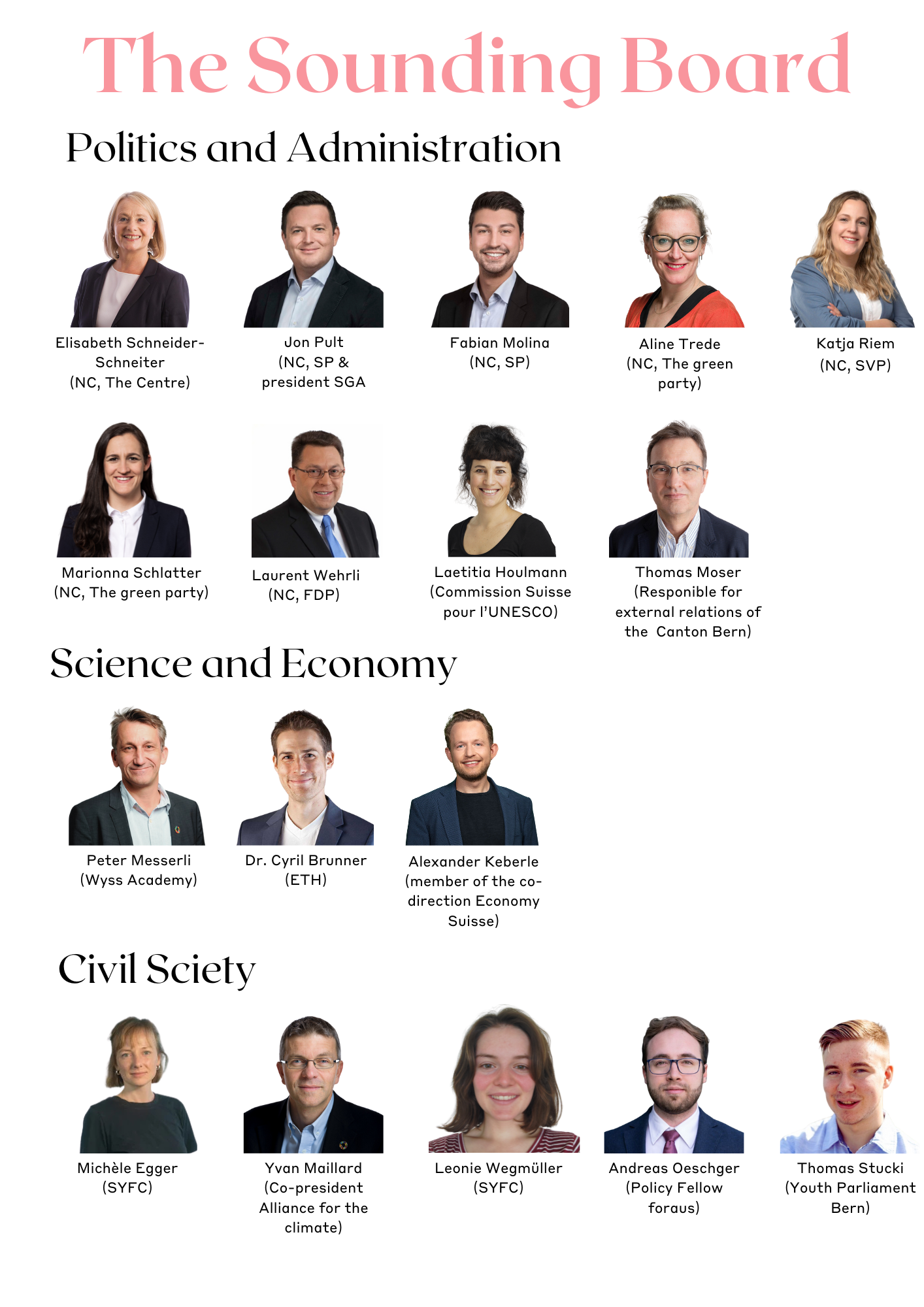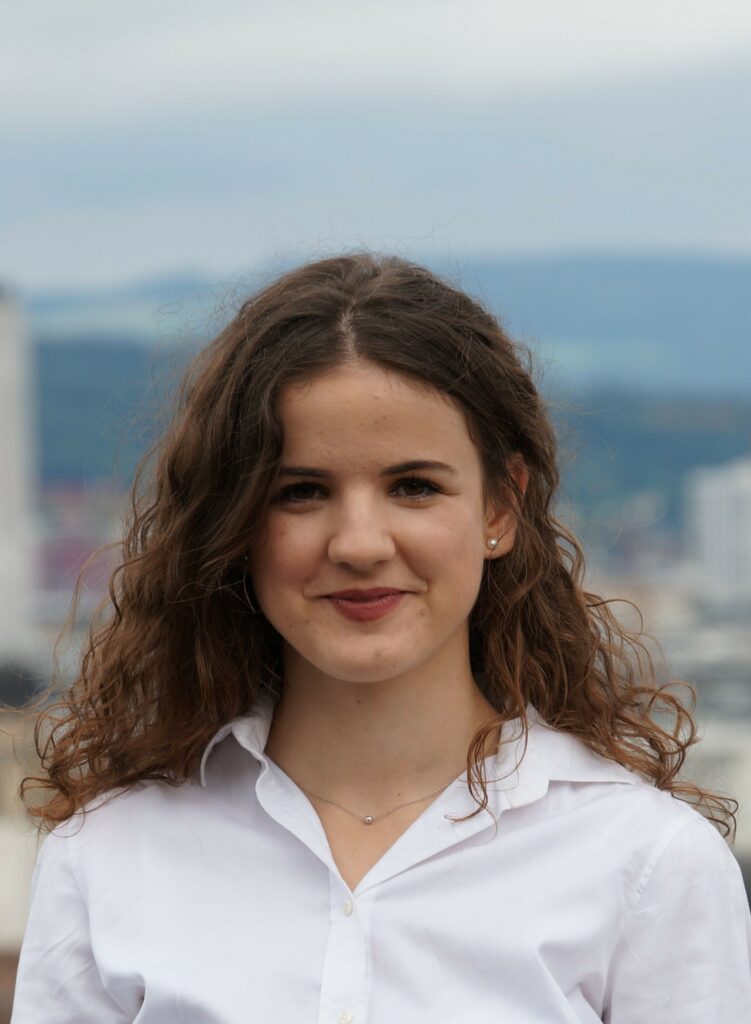September 2024
August 2026
foraus and Proberaum Zukunft are jointly staging future challenges for Swiss foreign policy in a unique setting. The first edition was “Die Jahrtausendflut”, a production at the Bern City Hall with an audience of over 150 people per evening.
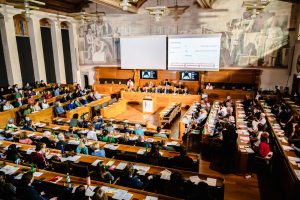
What was it about?
Spring 2037: an age-old tidal wave strikes the Alpine country of Switzerland. Weeks of bad weather, melting snow and extreme precipitation sweep away slopes and flood the Plateau. The authorities are overwhelmed. Our neighboring countries are ready to support Switzerland with their Green Helmet troops – troops newly trained to combat climate change. In return, Switzerland must send its own population to serve the Green Helmets. What can be done?
In “Die Jahrtausendflut”, the audience met high-level representatives from politics, business and science in the not-too-distant future, and had to choose between joining the Green Helmets and committing themselves to climate service, or facing the crisis alone. Human lives and Switzerland’s independence were at stake. The ultimatum expired at 9pm.
With personalities such as Andrea Sprecher Olsansky, Guy Krayenbühl, Daniel Koch, Regula Rytz, Ambassador Karin Mössenlechner, Jacqueline de Quattro, Flavia Wasserfallen, Marc Jost, Francis Cheneval, Swiss Youth for Climate, Petra Sieber, Cyril Brunner, Fabienne Stämpfli, Romeo Arnold, Toni Eder, Elisa Cadelli, Benno Zogg, actors from Bühnen Bern, Tom Berger, Nathan Näpfli, Christine Badertscher, Damaris Hohler, Christian Bär, Flavien Gousset, Amélie Galladé, Nicole Siegrist and representatives of the Klimasenior:innen.
Performances
On April 23, 29 and 30, as well as on May 5, 2025, we were able to experience four unique and successful performances with 76 experts and over 700 participants at Bern City Hall. At our Special Edition Young on April 30, we also discussed with an under-30 audience and were thus able to involve young people in the fictional political discourse. Satisfied and with some pride, we can look back on fantastic goose-bump moments, exciting political discussions and a dramatic debate in which the politics of the future suddenly became tangible and real.
Here you can watch a short trailer of the performances.
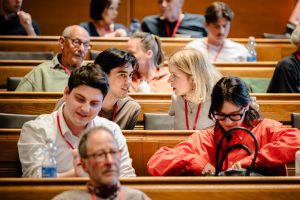
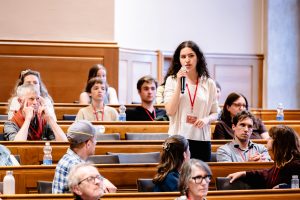
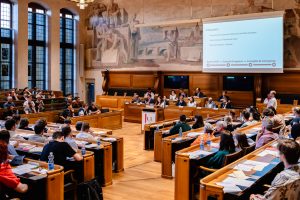
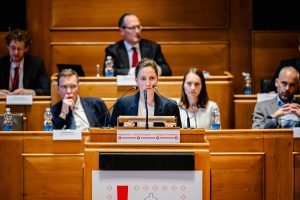
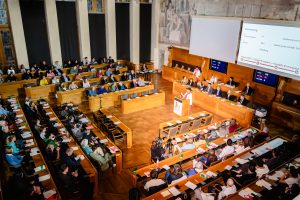
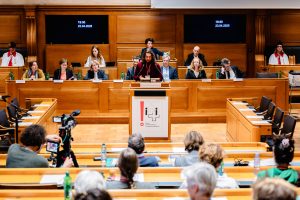
Note: Further pictures can be viewed via this link ©Jérôme Favre
Media response
Wir müssen für unsere Klimasünden bezahlen. Mit der Katastrophe? – Berner Zeitung, Jasmin Jaun
In der Flut – Republik, Leonard Haverkamp
Notrat berät simulierte Krise – TeleBärn, Micha Weibel
Kultur Kompakt Podcast (ab Min. 15:04) – Schweizer Radio und Fernsehen (SRF), Anna Jungen
JD Vance ist US-Präsident und Frau Blocher steht in der Suppenküche: Ein Polittheater simuliert die Zukunft – Tagblatt, Julia Stephan
Die Jahrtausendflut – Wenn Theater, Politik und Publikum aufeinandertreffen – Deutschlandfunk, Anita Gestrüpp
Eine Vorstellung, die sich erschreckend echt anfühlt – Journal B, Noah Pilloud
«Die Jahrtausendflut»: Im Ausnahmezustand – WOZ Die Wochenzeitung, Tabea Andres
What happens now?
We are now in the process of reviewing the political input from the first edition and evaluating the format.
If you have any questions about the project or about opportunities for collaboration on further editions, please contact Luana Nava (luana.nava@foraus.ch).
Why is the project important?
Political issues must be presented in a way that is both scientifically sound and understandable and, above all, emotionally moving. Foreign policy in particular often seems far away, complex and distant from everyday life. Unfortunately, the flood of information often leads to a so-called ‘state of powerlessness’, in which one’s own political participation appears to be null and void. And although many young people are involved in climate policy initiatives such as ‘Fridays for Future’, their political participation remains very low (srf 2023). In order to generate engagement, Political processes need to be brought to life with new and innovative formats. To make this happen, it requires methods from the arts and culture.
The first pilot took place throughout four events with a focus on foreign climate policy. We want to motivate and empower young people to get involved in the debate on climate and environmental foreign policy, to show solidarity with those who think differently, and to find compromises together. With the “Politique en scène” project, we bring together the young population, science, politics and the economy on ecological issues.
The project is supported by a cross-party advisory board, which ensures the visibility and quality of the project. The advisory board is made up of scientists, politicians, people from civil society and foraus experts.



